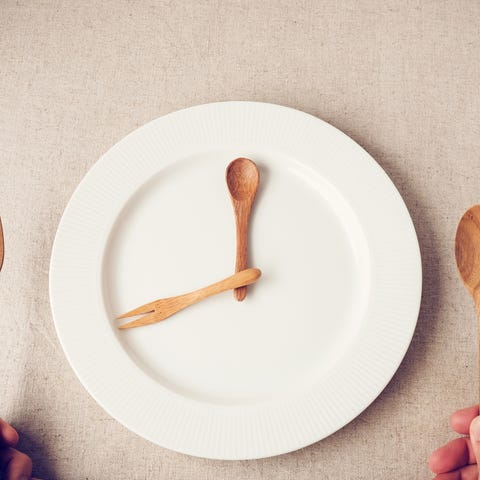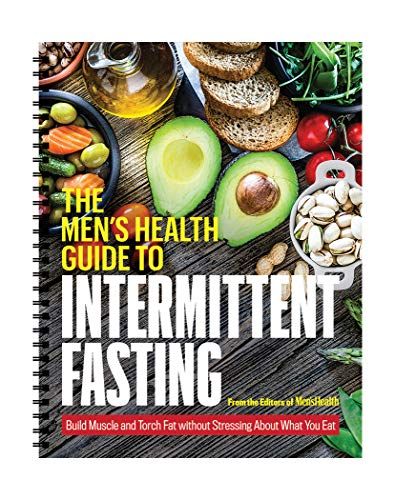Daily Expert: Before You Trying Intermittent Fasting, Do These 5 Things
Fasting is nothing new—people have been doing it for centuries. But, as a dietitian, more of my clients are now asking me about “intermittent fasting” (IF) as a way to lose weight.
If you’re unfamiliar with IF, there are two ways you can approach this style of fasting. One, you can eat a very low-calorie diet a couple days a week, and then eat “normally” the rest of the week. Or, two, or you can restrict when you eat to within a set time period—usually 6, 8, or 12 hours a day.
I think intermittent fasting is popular because it does helps people lose weight and it’s also fairly easy to follow and stick to. People like nutrition “rules” and this style of eating gives a time to eat and a time to stop eating. This usually leads to eating less overall, which often leads to weight loss.

“What we previously thought—that going longer periods between meals would slow metabolism—doesn’t hold weight anymore. In fact, many studies suggest that intermittent fasting may be a healthier way to eat, be a more effective approach for weight loss, and even slightly boost your metabolism,” says Carolyn Williams, Ph.D., R.D.
But there are also always downsides to diets, particularly if you take them to an extreme.
With that said, it’s important to, “be in tune with how much weight you’re losing and what your average calorie intake is,” says Spenser Nadolsky, D.O., of RPHealth.com. “And tell your doctor if you’re doing IF.”
And keep these five tips in mind to avoid other common pitfalls of intermittent fasting.

Getty Images
Keep it short
There’s a reason why low- or no-calorie days are limited on IF: If you fasted for an extended period of time your metabolism would slow. But short, restricted periods won’t hinder your body’s calorie-burning ability, and may even increase your burn.
Don’t binge on your “normal” days
You don’t want to make up for an earlier day’s calorie deficit by going big on your normal days. Binging or overeating will erase all that effort of your ultra-light days. And similarly, if you’re eating within a restricted time window, that doesn’t give you license to eat anything, or everything. Make wise choices.

.
Check out The Men’s Health Guide to Intermittent Fasting
amazon.com
$24.95
Buy Now
Focus on protein
When you’re fasting intermittently it’s harder to consume the full quantity of protein you need. For one, protein is super-satiating and so you might not be all that hungry for your meals if you’re eating within a narrower window. Or, if you’re following an IF diet where you eat only a few hundred calories a couple days a week, you may find it difficult to eat an optimal amount of protein on low-calorie days.
In both instances, you want to make protein count—to help you stay satisfied and stick to your regimen, but also to maintain as much muscle as possible when you’re losing weight. So aim to hit the recommended 30 percent of your diet as protein (on an 800-calorie day, which is typical on some IF protocols, that’s 60 grams) and be sure it’s coming from high-quality protein (lean meats, seafood, chicken, protein-rich plants).
Keep your calendar in mind
Whether it’s work, your workout, or your social schedule, check your calendar and optimize your fasting so that it doesn’t interfere with your need to be on-point for that big pitch meeting at work or crush your workout buddies at your gym’s monthly competition.
You also want to take into account your social commitments: if you’re meeting for dinner at 8:00 p.m., what time will you really be done eating and will that kill your meal timing? And more importantly, will that drive you bananas if you’re “outside your eating window?” I’ve heard from several people the social challenges of eating within a time frame make it difficult to follow.
Whatever you do—don’t forgo your meal calories for drinks. Not only will you feel downright awful the next day, but there’s a 99 percent chance you’ll do or say something you regret. Remember, food absorbs alcohol.
Focus on quality foods
I know, I know, you’ve heard this before. But just a quick reminder that when you’re dieting (aka eating fewer calories), it’s harder to make sure you’re getting all the vitamins, minerals, and disease-fighting compounds you need to keep you at peak performance. So eat those veggies, fruits, whole grains, nuts, seeds, and lean proteins.
Source: Read Full Article
